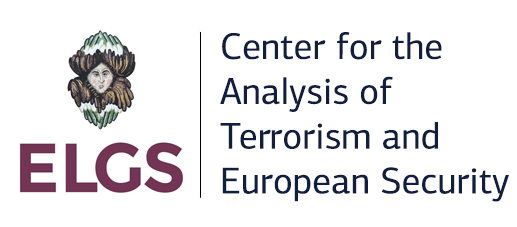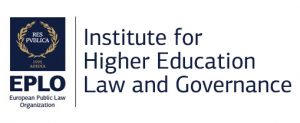Institutes and Entities of the European Law & Governance School
Sustainable Development Goals Centre on Governance and Public Law
Governments and the private sector are in need of modern tools for developing strategies and action plans to improve governance processes and structures in order to effectively promote the implementation of the Sustainable Development Goals (SDGs).
Since their adoption the historic UN Summit by world leaders in September 2015, it is understood that the entire issue of governance for the implementation of the SDGs is, to a large extent, a terra incognita in terms of legal aspects and governance modalities for public and private entities.
The Sustainable Development Goals Centre on Governance and Public Law, a joint initiative of the Cambridge Institute for Sustainability Leadership (CISL), the European Public Law Organization (EPLO) and its European Law and Governance School (ELGS), responds to this need being uniquely positioned to provide this service to both public and private entities as it draws from the rich experience of its founding institutions, and brings together their expertise and influential status.
MISSION
The Mission of the Sustainable Development Goals Centre on Governance and Public Law is to respond to the need for capacity building in Governance for the implementation of the SDGs. In collaboration with global leadership in SDG implementation, including the programmes and activities of the UN entities, the European Union structures and other partner organizations, and leaders in sustainable development in the private sector, the Sustainable Development Goals Centre on Governance and Public Law will provide:
Effective and cost-efficient support to Public and Private Institutions, including Government, Inter-Governmental Organizations and Private Sector entities, including business and economic actors, such as industries and banking, among others.
Training Programmes adapted to the specific needs of each target group, in order to provide learning, training and practice aiming to advance SDG implementation in Public and Private Entities, and opportunities for interaction between them.
A Programme of Research and Publications in this new field, thus providing the analytical and practical tools needed for their implementation.
A ToolBox that empowers countries and private entities, as well as international and inter-governmental institutions to approach the complicated issue of implementing the SDGs.
Center for the Analysis of Terrorism and European Security (CATES)
MISSION STATEMENT
Terrorism is one of the pre-eminent security preoccupations of western states. However, terrorism is not a problem amenable to blanket analytical strategies and policy initiatives. Rather, it is a complex and adaptive phenomenon, emerging and operating in and across societies spread across the globe. At the same, data-driven analysis and information regarding the terrorist risk Europe is facing has failed to reach mainstream audiences, while the considerable EU counter-terrorism efforts have gone rather unnoticed by the European public. In effect, the threat of terrorism remains not only a continuing analytical and policy challenge but also a source of high public anxiety.
To address these challenges CATES aims to:
– facilitate high-quality, theoretically informed and policy relevant, academic research on terrorism and European security;
– develop co-operation with other research programs across Europe;
– create a cross-disciplinary forum for researchers to share theoretical and analytical perspectives;
– encourage junior researchers to join the fast growing community of terrorism studies;
– foster engagement with the political and policy world;
– disseminate into the public sphere scientifically informed and evidence-based analysis of the current terrorist threat in Europe.
Goverance
Director
- Andreas Gofas |Associate Professor of International Relations, Panteion University of Athens
Andreas Gofas is Associate Professor of International Relations Theory at Panteion University of Athens and Visiting Professor at the European Law and Governance School. He is also co-director of the Olympia Summer Academy and the coordinator of the Counter-Terrorism and Transnational Security Governance executive seminar, offered by the EUI’s School of Transnational Governance. In the past, he has held research positions at the European University Institute (Jean Monnet Fellow), the University of Sheffield (Marie Curie Fellow), Yale University (Visiting Scholar), Institut Barcelona d’Estudis Internacionals (Postdoctoral Fellow), and the LSE (Visiting Fellow). He is the co-author of Theoretical Projections in International Politics (in Greek) and co-editor of The Role of Ideas in Political Analysis. Currently, he is co-editing the Oxford Handbook of Terrorism and the SAGE Handbook of the History, Philosophy and Sociology of International Relations.
cates@elgs.eu
Institute for Higher Education Law and Governance (IHELG)
About IHELG
The Institute for Higher Education Law and Governance (IHELG) is home to sponsored research and academic programs and projects that examine higher education systems and policy issues from a wide range of analytical perspectives, including those of social scientists, policy makers, and institutional leaders from across sectors within Europe and abroad.
The Institute is comprised of a multi-disciplinary group of faculty, researchers, and graduate students, and it is housed in the European Public Law Organization (EPLO).
The Institute has been established in order to promote the research, development of studies, opinions, education, and training in the field of higher education studies of a global or multinational dimension. The field of interest of the IHELG includes the study and research of situations characterized as global and/or international higher education studies with the aim to identify and analyze the instruments to be used for their management, the models of public communication, the impact of policies, the best practices used both at a legislative and administrative level.
Activities
IHELG encourages and (co) organizes analyses, studies, research, conferences, lectures, seminars, discussions, meetings and publications in the field of higher education studies. It also stimulates academic, university and public interest in the knowledge, reasoning, theory and management of higher education systems at national, European and international levels.
As concerns its educational activities, the IHELG encourages and (co) organizes academic and research courses, study and training programs, and practical activities in the field of expertise.
The Institute provides opinions and prepares reports in the field of expertise as well for the benefit of different organizations, institutions and official bodies at European and international levels.
Organization
The Institute is under the responsibility of its Director and the Advisory Council.
The Director of the Institute collaborates with the Management and other services of the EPLO in order to secure material feasibility, planning and execution of their decisions.
The IHELG, affiliated with the ELGS, also constitutes a postgraduate institute of Higher Education of the EPLO.
The Advisory Council is composed of scientists and experts in fields relative to Higher Education studies from all over the world, offering its academic experience.
Director: Prof. Luca Lantero



